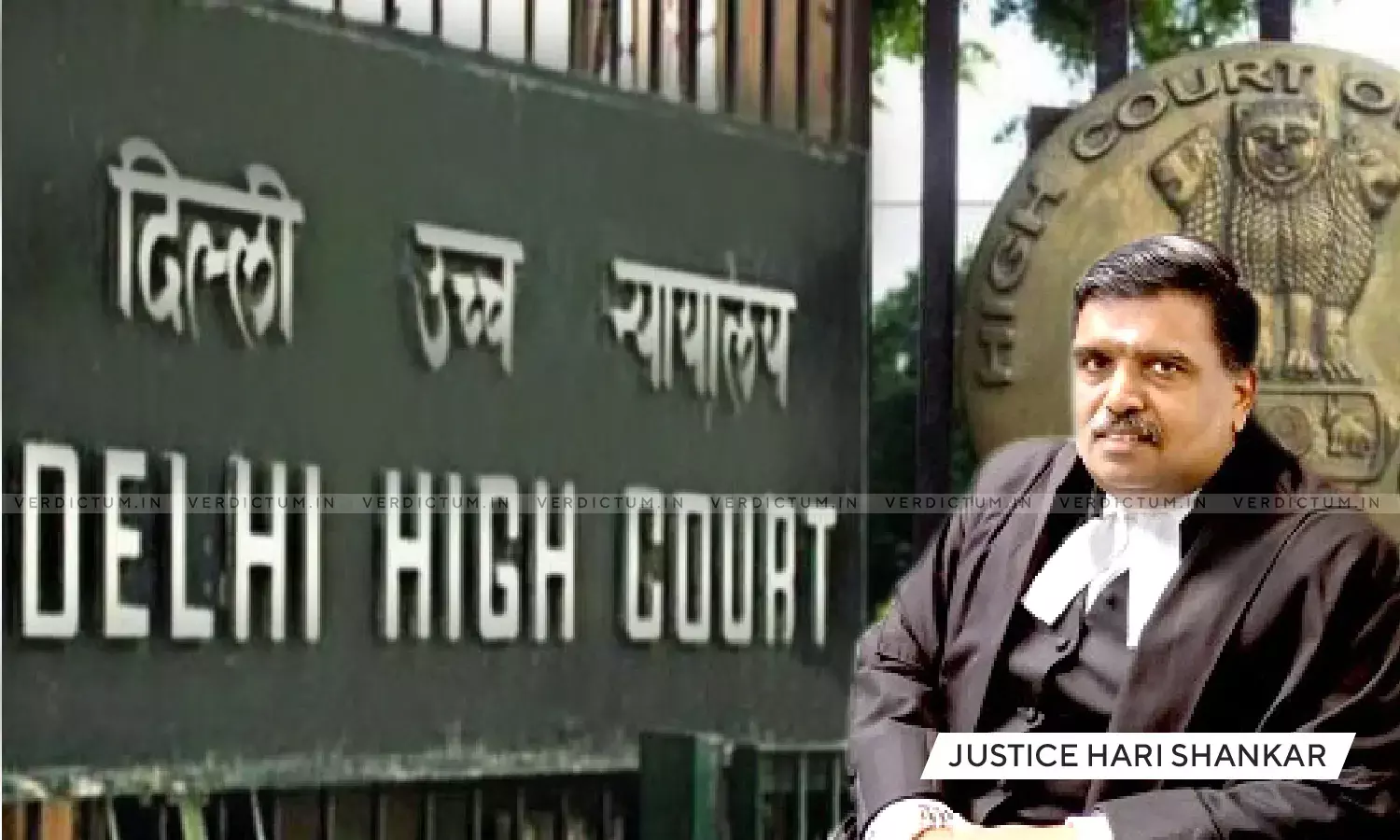Patents Act| Revocation Petition Under Section 64 Not A Suit Within Meaning Of Section 10 Of CPC- Delhi HC Observes

A Delhi High Court Bench of Justice C Hari Shankar has observed that a revocation petition under Section 64 of the Patents Act is not a suit within the meaning of Section 10 of the Code of Civil Procedure.
In these circumstances, therefore, the first issue which arises for consideration, which is whether a revocation petition can be treated as a suit for the purposes of Section 10 of the CPC, has also necessarily to be answered in negative. In other words, in my considered opinion, a revocation petition under Section 64 of the Patents Act is not a suit within the meaning of Section 10 of the CPC.
Counsel J Sai Deepak, among others, appeared for the petitioners, while CGSC Harish Vaidyanathan Shankar, among others, appeared for the respondents.
In this case, the matter for adjudication was preferred by respondent-Boehringer Ingelheim International GmbH, under Section 10 of the CPC, seeking a stay of proceedings in the revocation petition CO (Comm. IPD-PAT) 3/2021, preferred by the petitioners under clauses (a), (d), (e), (f), (h), (i), (k) and (m) of Section 642 of the Patents Act 1970.
A revocation petition (CO (Comm. IPD-PAT) 3/2021) was electronically filed on October 16, 2021, seeking to cancel patent IN 268846 held by Respondent 2. This patent was for an anti-diabetic drug. Despite the court holiday, it was processed and registered on October 21, 2021, with a hearing scheduled for October 22, 2021.
On the other hand, Boehringer filed a lawsuit (COMS 5/2021) on October 19, 2021, accusing the petitioners of infringing the same patent. This lawsuit was swiftly followed by another (COMS 7/2021) on October 21, 2021, both leading to stay orders by the High Court of Himachal Pradesh.
The counsel for Boehringer argued that the issues in both the revocation petition and COMS 5/2021 were identical. He highlighted that the petitioners had already challenged the patent's validity in their response to COMS 5/2021. This response mirrors the revocation petition.
The Court observed that the institution of the present revocation petition had to be regarded as prior in point of time to the institution, by Boehringer, of COMS 5/2021 before the High Court of Himachal Pradesh.
Further, the Court said that although it is generally understood that the CPC does not define the expression “suit”, an indirect definition of the expression is actually to be found in Order IV Rule 1(1) of the CPC. In furtherance, it was said that, "Order IV Rule 1(1) may, read differently, be understood as stipulating that a suit is a plaint which is presented to a Court or to the officer appointed by the Court in that behalf. Presentation of a plaint in the Court or to the duly appointed officer, therefore, brings into existence a “suit” within the meaning of the CPC."
Subsequently, it was observed that, "In the absence of any provision by which a revocation petition under Section 64 of the Patents Act can be treated as a suit, a Court cannot deem a revocation petition to be a suit. Deeming fictions, and the creation of deeming fictions, are generally the exclusive province of the legislature. If a legislature creates a deeming fiction, then the principle laid down by Lord Asquith in East End Dwellings Ltd v. Finsbury Borough Council28 would apply and the Court would deem all sequelae to the deeming fictions to also follow from the creation of the fiction itself. The Court cannot, however, create a deeming fiction on its own, where the statute does not do so." In light of the same, the Court held that in absence of any provision that deems a revocation petition under Section 64 of the Patents Act to be a suit, a Court cannot, even in the interests of expediency, so hold.
Expanding on the reasoning behind why a revocation petition cannot be treated as a suit for the purposes of Section 10 of the CPC, the Court also observed that, "Section 10 does not bring to a halt the proceedings in a suit, even if it applies in the facts of a particular case. It only stays the trial of the suit. It is well settled that, even in a case where Section 10 applies, the Court which is seized of the later suit may still pass interlocutory orders under Order XXXIX of the CPC and other cognate provisions. All that is stayed is the trial of the suit."
Relying on the cases of Aspi Jal v. Khushroo Rustom Dadyburjor and National Institute of Mental Health & Neuro Sciences v. C. Parameshwara, the Court observed that even on merits, any case exists for staying the present revocation petition pending the outcome of the suit instituted in the High Court of Himachal Pradesh.
Cause Title: Dr Reddys Laboratories Limited & Anr. vs The Controller of Patents & Ors.
Click here to read/download the Judgment

